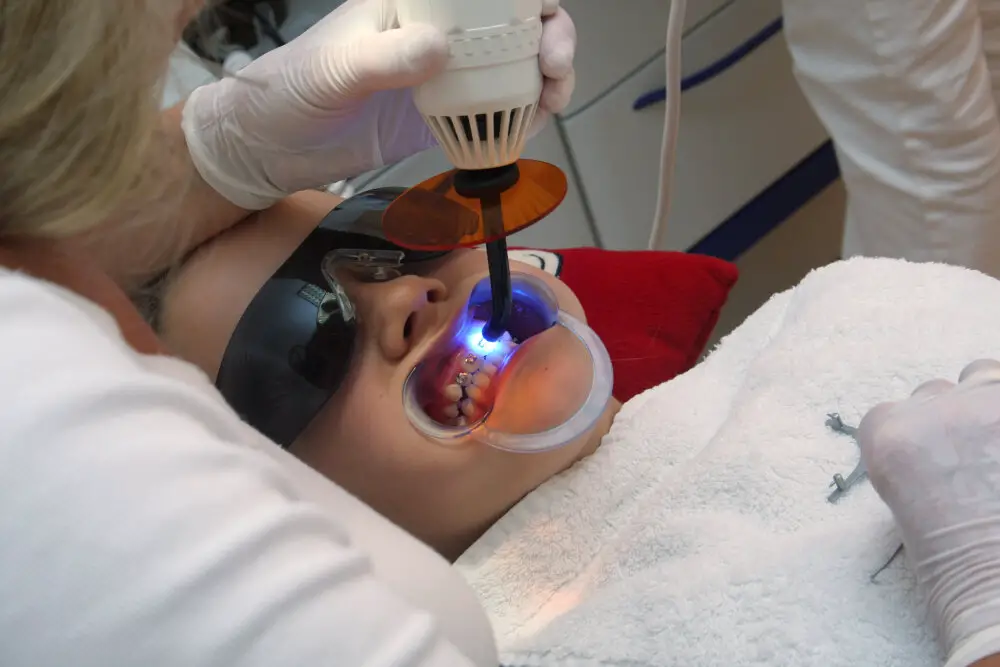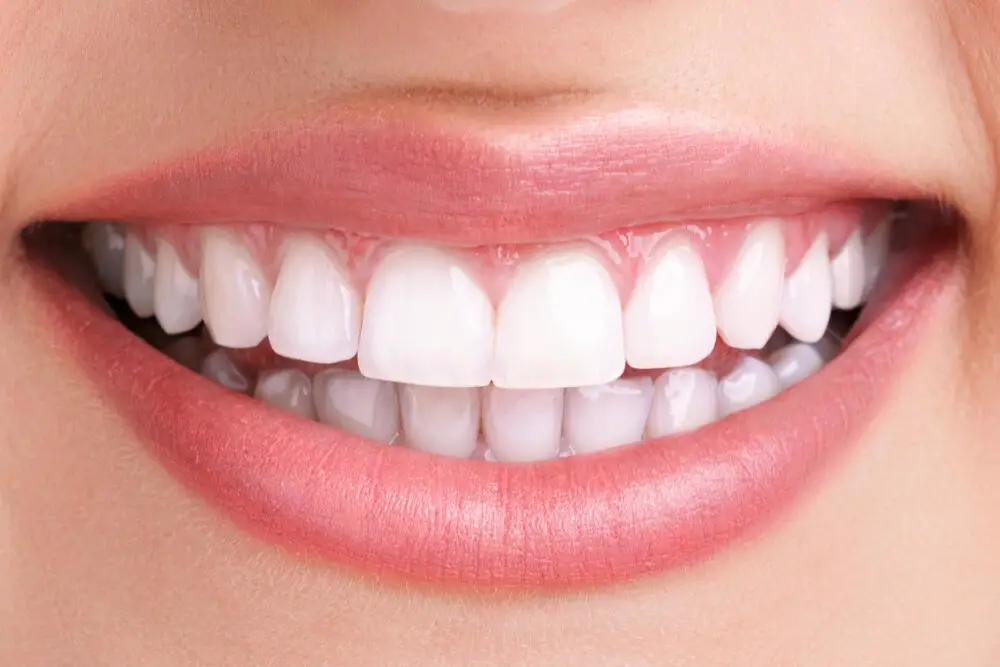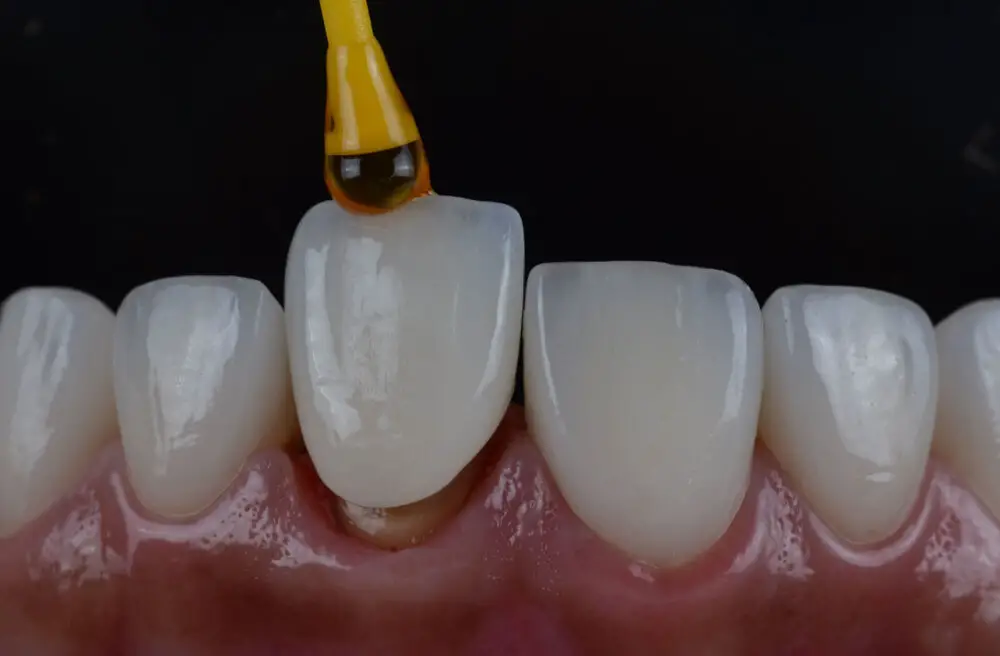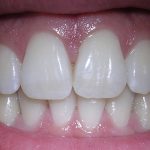Why Wisdom Teeth Grow Sideways and How to Prevent Complications

Wisdom teeth, also known as third molars, are the last set of teeth to develop in the human mouth. Although they are called “wisdom teeth,” they often cause problems instead of wisdom. One of the most common complications associated with wisdom teeth is their tendency to grow sideways, which can lead to a host of issues such as pain, infection, and damage to adjacent teeth. Understanding why wisdom teeth grow sideways and how to prevent complications is essential to maintaining optimal oral health. The reason why wisdom teeth grow sideways is multifaceted. One of the primary reasons is the lack of sufficient space in the mouth to accommodate them. As a result, they can become impacted, causing them to grow in a direction other than straight up. Another reason is the evolutionary process. As humans have evolved, our jaws have become smaller, making it difficult for wisdom teeth to emerge straight. Moreover, changes in our diets have also contributed to the sideways growth of these teeth. With the advent of softer foods, our jaws have become weaker, which has made it harder for wisdom teeth to grow correctly. With these factors in mind, it is essential to take preventative measures to prevent complications associated with wisdom teeth.
Wisdom teeth, also known as third molars, are the last set of teeth to emerge in the human mouth, typically between the ages of 17 and 25. These teeth were once necessary for our ancestors to grind and chew tough foods, but with the evolution of our diets and our smaller jaws, they have become vestigial organs. Wisdom teeth often cause problems because they do not have enough space to grow properly and can become impacted, which means they grow in sideways or at an angle. This can lead to a range of complications, including infection, pain, and damage to adjacent teeth. Therefore, it is important to monitor the growth of wisdom teeth and seek preventative treatment if necessary.
Wisdom teeth, also known as third molars, are the last set of teeth to emerge in the back of the mouth. However, they often grow sideways or become impacted due to lack of space in the jaw. This can lead to a range of complications, including pain, infection, and damage to surrounding teeth. The reason for this sideways growth is thought to be a result of human evolution, where our ancestors had larger jaws to accommodate the extra teeth. However, as our diets have evolved, our jaws have become smaller, leaving little room for these late-emerging teeth. To prevent complications, it is recommended to have regular dental check-ups and to have wisdom teeth removed before they cause problems.
Evolutionary Explanation

Evolutionary Explanation:Wisdom teeth are the third set of molars that typically emerge during early adulthood. However, many people experience complications due to the misalignment of these teeth. From an evolutionary perspective, the reason behind these complications is that humans’ jaws have become smaller over time, and we no longer require wisdom teeth to chew tough and hard foods. As a result, our bodies have begun to adapt, and the development of wisdom teeth has become unnecessary. The process of adaptation has resulted in many people having smaller jaws, which do not have enough space to accommodate wisdom teeth. This lack of space causes wisdom teeth to grow sideways, causing pain and discomfort. Evolutionary theory suggests that this is a natural process of adaptation, and it is likely that future generations of humans will no longer develop wisdom teeth at all. Until then, it is essential to take measures to prevent complications and maintain oral health.
Wisdom teeth, also known as third molars, are believed to have been useful in the past for our ancient ancestors who had larger jaws and needed them to properly chew tough and coarse foods. However, as humans evolved and our diets changed, our jaws have become smaller and no longer require wisdom teeth. This has resulted in many people experiencing complications such as impaction, infection, and damage to adjacent teeth when these teeth grow sideways. While some individuals may not experience any issues with their wisdom teeth, it is important to monitor their growth and consider removal if they pose a risk to oral health.
The evolution of human diets from our early ancestors to modern-day has significantly impacted the growth of wisdom teeth. In the past, humans consumed a diet that consisted of coarse and rough foods, such as roots, nuts, and raw meat, which required more intense chewing and powerful jaw muscles. As a result, our ancestors’ jaws were larger and more robust, providing ample space for wisdom teeth to grow normally. However, the introduction of softer and processed foods has led to a reduction in jaw size and muscle strength, resulting in insufficient space for wisdom teeth to properly emerge. This has caused wisdom teeth to grow sideways, become impacted, and cause complications such as infection, swelling, and pain.
Genetic Factors

The growth and development of wisdom teeth are influenced by various factors, including genetic factors. Studies have suggested that some people may be more prone to experiencing complications associated with wisdom teeth due to genetic predisposition. Individuals with a family history of impacted wisdom teeth or dental crowding may be at a higher risk of developing these issues themselves. Additionally, genetic factors may play a role in determining the size and shape of the jawbone, which can impact the alignment and eruption of wisdom teeth. Therefore, it is important for individuals to be aware of their family history and to inform their dentist if there is a history of wisdom teeth complications. Genetic factors may also impact the timing of wisdom teeth eruption. Studies have shown that the age at which wisdom teeth begin to emerge is largely determined by genetics. Individuals with a family history of early or delayed wisdom teeth eruption may experience similar patterns themselves. Additionally, genetic factors may impact the number of wisdom teeth an individual has. While most people have four wisdom teeth, some individuals may have fewer or even none at all. Understanding the role of genetics in wisdom teeth development can help individuals make informed decisions about their oral health and may even aid in predicting potential complications.
Genetics can play a significant role in the growth of wisdom teeth. The size and shape of the jawbone, as well as the number of teeth, are inherited traits that can impact the growth of wisdom teeth. If the jaw is too small to accommodate the wisdom teeth, they may grow sideways or become impacted. Additionally, the rate of development and eruption of teeth can vary based on genetic factors. Individuals with a family history of problematic wisdom teeth may be more likely to experience complications and should be monitored closely by a dentist or oral surgeon. Understanding the role of genetics in wisdom teeth growth can help individuals better prepare for potential complications and seek appropriate treatment when necessary.
Human evolution is responsible for the absence of wisdom teeth in some individuals. As our ancestors evolved to consume more cooked and processed food, the size of our jaws decreased, leaving no room for wisdom teeth. This is why some people are born without them. Moreover, studies suggest that genetic factors might also play a role in the absence of wisdom teeth. Research has found that people of Asian descent are more likely to lack wisdom teeth, while people of African descent are more likely to have them. Overall, while some people may never experience the discomfort and complications associated with wisdom teeth, proper dental care and regular checkups are essential to ensure optimal oral health.
Overcrowding and Impaction

Overcrowding and impaction are two common problems that occur when wisdom teeth grow sideways. Overcrowding happens when the wisdom teeth grow in a way that causes them to push against the other teeth, shifting them out of position. This overcrowding can lead to a number of issues, including discomfort, pain, and difficulty biting and chewing. In severe cases, overcrowding can even lead to damage to the other teeth, requiring significant dental work to repair. Impaction, on the other hand, occurs when the wisdom teeth grow at an angle that causes them to become stuck in the gums or jawbone. This can lead to a number of complications, including infection, swelling, and pain. Impacted wisdom teeth can also cause damage to the surrounding teeth, increasing the risk of decay and gum disease. In some cases, impaction may require surgical removal of the wisdom teeth to prevent further complications. Overall, it is important to monitor the growth and development of wisdom teeth to prevent overcrowding and impaction, and to seek prompt treatment if any issues arise.
Wisdom teeth, also known as third molars, are the last set of teeth to erupt in the mouth. When they grow horizontally or sideways, they can cause a range of complications. One of the most common issues is impaction. This occurs when the tooth is unable to fully emerge through the gum line, causing pain, swelling, and infection. Impacted wisdom teeth can also damage adjacent teeth, causing decay and gum disease. In some cases, they can even lead to cysts or tumors in the jawbone. Fortunately, early detection and proactive measures, such as regular dental checkups and x-rays, can help prevent these complications and ensure the health and well-being of your teeth and gums.
Wisdom teeth, also known as third molars, often grow in sideways due to a lack of space in the mouth. This can lead to overcrowding and impaction, which occurs when the tooth is unable to fully emerge from the gum line. Overcrowding can cause the teeth to shift and become misaligned, leading to discomfort and difficulty with chewing or speaking. Impaction can also cause pain and swelling, and in some cases, infection. To prevent these complications, it’s important to have regular dental check-ups and to have wisdom teeth evaluated by a dentist or oral surgeon. In some cases, preventative measures such as early removal of the wisdom teeth may be recommended to avoid overcrowding and impaction.
Impacted wisdom teeth can cause various complications that can affect the overall oral health of an individual. One of the most common complications is pain and discomfort, which can be severe and persistent. Impacted wisdom teeth can also contribute to the development of gum disease, infections, and tooth decay as they provide a breeding ground for bacteria and food particles. Furthermore, impacted wisdom teeth can lead to the misalignment of adjacent teeth, causing bite problems and jaw pain. In some cases, cysts or tumors can develop around impacted wisdom teeth, causing further damage to the surrounding tissues and structures. Therefore, it is crucial to prevent the complications of impacted wisdom teeth by seeking dental care and monitoring their growth and development.
Prevention and Treatment

Preventing and treating complications associated with wisdom teeth is crucial for maintaining oral health. One of the most effective ways to prevent these complications is by being proactive in monitoring the growth and development of wisdom teeth. Regular dental check-ups and X-rays can help detect any potential issues early on, allowing for timely intervention. In some cases, removing the wisdom teeth before they cause problems may be the most effective preventative measure. This is especially true for individuals whose wisdom teeth are already impacted or growing in at an angle. Extraction is a common procedure that can be performed by a dentist or oral surgeon in a relatively short amount of time. In addition to preventing complications, extraction can also alleviate symptoms such as pain and discomfort. For those who have already experienced complications due to wisdom teeth, there are several treatment options available. In cases where the wisdom teeth have caused infection or damage to surrounding teeth, antibiotics may be prescribed to help clear up the infection and reduce swelling. Pain relievers may also be recommended to alleviate discomfort. In more severe cases, surgery may be necessary to remove the impacted or infected wisdom teeth. The type of surgery required will depend on the severity of the issue, and may involve the removal of one or more teeth. Regardless of the treatment approach, it is important to seek prompt care in order to prevent further damage and promote healing.
Wisdom teeth growth can often lead to complications if not properly taken care of. To prevent these complications, regular dental check-ups are essential. Dentists can monitor the growth and development of wisdom teeth and recommend necessary interventions. Maintaining good oral hygiene practices, such as brushing and flossing regularly, can also help prevent complications. Additionally, avoiding hard and sticky foods can prevent damage to the teeth and gums. In some cases, wisdom teeth may need to be removed to prevent further complications. Overall, early detection and proactive measures can prevent complications and ensure optimal oral health.
Wisdom teeth, also known as third molars, are the last set of teeth to emerge in the back of the mouth. While not everyone needs to have their wisdom teeth removed, there are certain circumstances in which it may be necessary. One of the most common reasons for removal is when the teeth are impacted, meaning they do not have enough room to grow properly and can cause pain, infection, or damage to adjacent teeth. Other reasons for removal may include decay, gum disease, or alignment issues. It is important to consult with a dental professional to determine whether wisdom teeth removal is necessary and to discuss any potential risks or complications.
There are several methods of wisdom teeth removal, depending on the position, size, and shape of the teeth, as well as the patient’s age, health, and preferences. One of the most common methods is extraction, which involves loosening the teeth from the gums and bones with a dental instrument and then pulling them out with forceps. This method is usually performed under local anesthesia, and it may cause some discomfort, swelling, bleeding, and numbness for a few days. Another method is surgical removal, which is recommended for impacted or partially erupted teeth that are embedded in the jawbone. This method requires an incision in the gums and sometimes the removal of some bone tissue to access the teeth. It may also require stitches and a longer recovery time compared to extraction. Other methods include laser and ultrasonic removal, which use energy waves to dissolve the teeth and minimize trauma to the surrounding tissues. Regardless of the method used, it is important to follow the dentist’s instructions before and after the procedure to ensure proper healing and prevent complications.
Wisdom teeth, also known as third molars, are the last set of teeth to erupt in the human mouth. These teeth are evolutionary remnants of our ancestors who had larger jaws and needed the extra teeth for chewing tough foods. However, due to the changes in our diet and jaw size over time, most people’s jaws are not large enough to accommodate these teeth. As a result, wisdom teeth can become impacted, meaning they do not fully emerge from the gums, or grow sideways instead of vertically. This is because there is not enough space in the jaw for them to grow properly. Sideways growth can cause a variety of complications, including pain, infection, and damage to surrounding teeth, gums, and bone. Therefore, it is important to monitor the growth and position of wisdom teeth and seek dental care if any issues arise.
Monitoring the growth of wisdom teeth is crucial to prevent potential complications. These teeth, also known as third molars, usually grow in sideways due to insufficient space in the jaw. This can cause impaction, infection, and damage to adjacent teeth. Regular dental check-ups and X-rays can help monitor the growth of wisdom teeth and identify any potential problems early on. In some cases, it may be necessary to remove the wisdom teeth to prevent further complications. Therefore, it is essential to prioritize monitoring the growth of wisdom teeth to maintain good oral health and prevent any unnecessary pain or discomfort.
Dental professionals play a crucial role in preventing complications associated with wisdom teeth. They can detect problems early on through regular check-ups and x-rays, and recommend removal or other treatments before problems worsen. They can also provide advice on proper oral hygiene and offer solutions for pain management. In addition, dental professionals have the expertise to perform extractions safely and effectively, reducing the risk of complications such as infections or nerve damage. By working closely with patients and providing education on preventative measures, dental professionals can help ensure healthy and pain-free oral health for years to come.
Conclusion

In conclusion, wisdom teeth are a natural part of human anatomy, but their growth pattern can create complications. The most common problem is when they grow sideways, which can cause pain, infection, and damage to surrounding teeth. While it is not always possible to prevent wisdom teeth from growing sideways, certain measures can reduce the likelihood of complications. Maintaining good oral hygiene, regular dental check-ups, and timely removal of impacted wisdom teeth are some of the effective ways to prevent complications. It is essential to consult a dentist and follow their advice to ensure the proper management of wisdom teeth, which can promote overall oral health and well-being.







